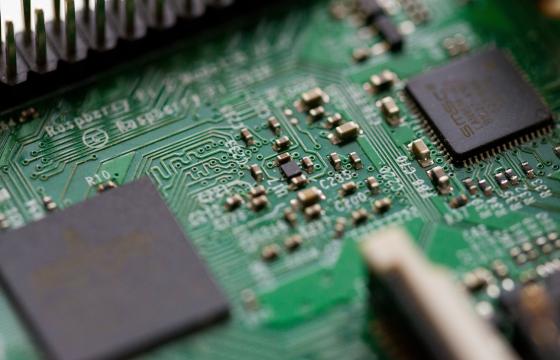
We sat down with Glyn Dodd, Channel Development Director, Edward Porter, Director of IoT Solutions, and Jason Murphy, Director of Global Retail, to hear what they think 2023 will bring for the IoT industry.
From continuing to recover from the effects of COVID-19 to reacting to the disruption of the war in Ukraine, the cold chain, our retailers, and the energy sector all faced enormous pressures and evolving challenges in 2022. With 2023 now well underway, it is clear that these sectors will continue to face challenges as the global economy heads closer toward recession. So, what role will technology, and in particular the Internet of Things (IoT), play in the next 12 months as organisations across these industries look to mitigate the pressures faced by global and local challenges alike?
Hear what three of our experts at IMS Evolve, Jason Murphy (Managing Director, Global Retail), Glyn Dodd (Channel Development Director), and Edward Porter (Director of IoT Solutions) had to say on the topic!
1) IoT implementation: A shift in the landscape
According to Jason Murphy, 2023 will see a notable shift in the implementation of IoT in retail specifically for two primary yet conflicting reasons: a desire by retailers to accelerate reducing inflationary pressures on energy prices, and less available cash to invest in new initiatives.
“What this means is that, in order for new projects to get board-level approval, there will be a much higher level of scrutiny on the return on investment, resulting in the need to produce strong evidence on the validity of the technology and the benefits it releases,” said Jason. As a change management expert with deep domain knowledge of the retail sector, Jason predicts that this shift is likely to lead to two trends emerging: smaller scale and shorter trials of new technology solution, and stronger boundaries and measurements in place to understand if the proposed outcomes have ben achieved. IoT and technology providers must be able to adjust their approach and prove tangible value if they are to keep up with industry demands and align to a new implementation landscape.
2) Action on energy: 2023 is the year
Action will overtake words when it comes to tackling the climate emergency is Glyn Dodd’s prediction for 2023. The emergence of ESG legislation, an increase in the publics ‘green focus’ fuelled by conferences such as COP27, and – perhaps above all else – a 300% increase in the cost of commercial energy pricing have meant that organisations across all industries have reached a tipping point in their energy strategies; optimising and reducing consumption is now the key to operational and financial success.
“Over the last five years, energy and sustainability have been on the board room agenda under ‘any other business’, but with the energy crisis now highlighted amidst a stark economic backdrop, the next 12 months will undoubtably see a rapid acceleration in our move toward greater sustainability,” said Glyn. In parallel to sustainability being thrust to the top of decision-makers agendas, the energy market will begin to drive clarity over its own landscape. What was a supply chain littered with start-up vendors and mixed marketing messages is now becoming a more mature and refined market with clear propositions and products, including IoT solutions, aligned to real-world challenges.
So, with the world’s eyes continuing to watch the energy crisis, 2023 is set to be the year where organisations take real action on sustainability and optimise energy consumption. Value-based solutions with proven experience and expertise are out there, and now is their time to shine.
3) Expecting more from solutions: A holistic view
Edward Porter has seen the role of IoT grow and evolve exponentially over his two decades of experience in the industry. But, connecting devices and collecting data is only the start. He believes this year, adopting organisations will start to actively seek and lean on vendors who combine multi-discipline data sets and create holistic views of their environments to drive true value.
From HVAC to refrigeration and lighting, industries, like food retailers in particular, will increasingly look to leverage IoT to gain complete and contextualised oversight of their shop floors in order to effectively manage and control assets to optimise settings.
“Connected IoT devices will be managed as a collective to evaluate holistic asset efficiency and impact on energy consumption. The core focus will be on calibrating how these assets all work alongside each other in the same environment to achieve optimal performance and consumption,” Edward says. A core focus embedded within this approach will be energy: how do all the assets work together in the same space, what are their optimal set ups to protect core deliverables (such as food safety and customer comfort in a retail space) and how can this holistic view enable optimised energy consumption to reduce not only carbon footprint but also, ultimately, expenditure.
So, while 2023 is looking to be another turbulent year, our experts have no doubt that tackling the climate emergency will be one of the key objectives of businesses and governments, and that technology will remain a focus for partnerships and investment. However, approach, financials, and value delivered must align between the technology provider and the adopting organisation in order for providers to identify themselves as leader and for adopters to lay the foundation for a green, clean transformation.